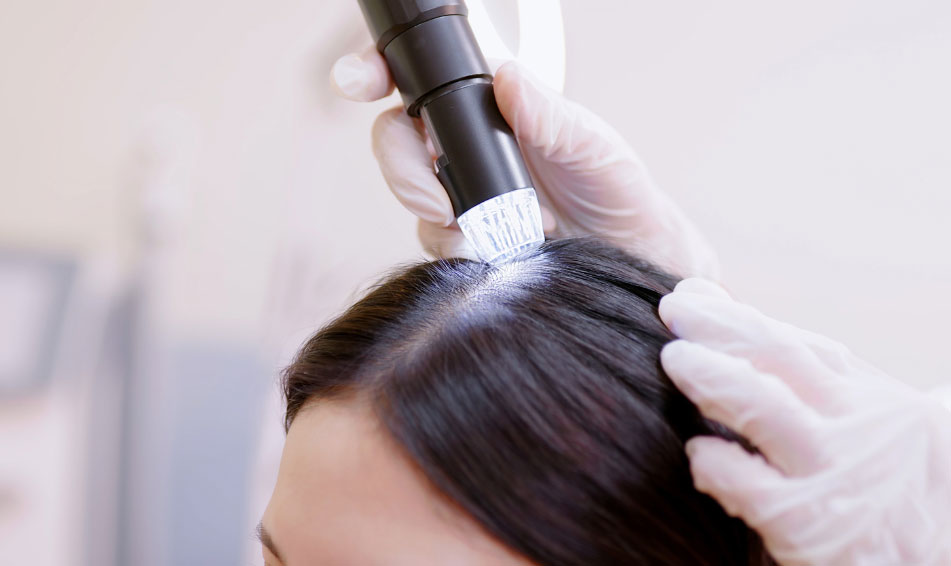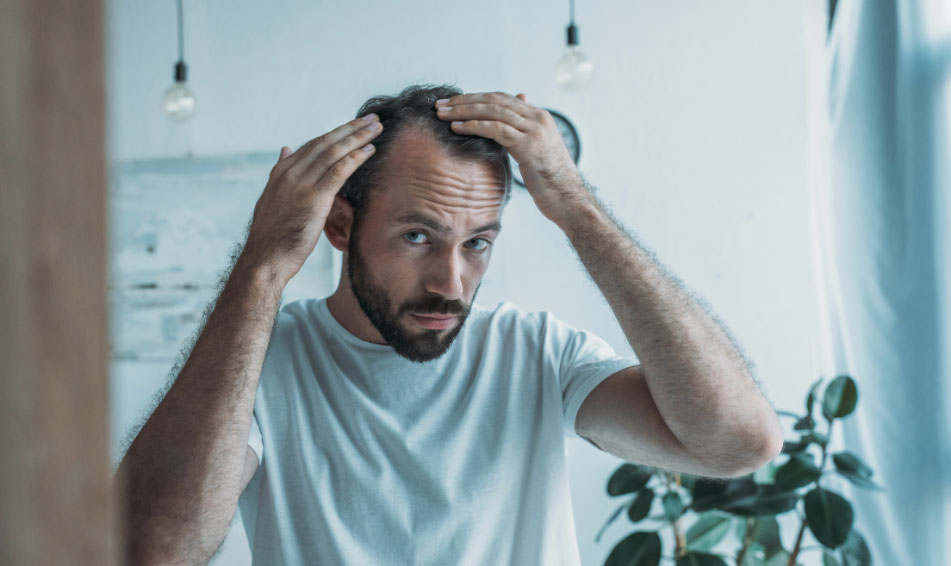The Hair Loss Puzzle: Unraveling the Factors That Affect Your Locks
Unlocking the Secrets Behind Hair Loss: A Deep Dive into Causes and Solutions
From Roots to Tips: Exploring the Complex Reasons Behind Hair Thinning and Loss
Beyond Genetics: A Comprehensive Guide to Understanding Hair Loss
Understanding the Multifaceted Causes of Hair Loss
A Comprehensive List of Reasons for Hair Loss
Who it’s for and why they should read
If you're noticing changes in your hairline or overall hair health, this article is for you. Understand the diverse causes of hair loss to take informed steps toward treatment and care.
Why Hair Loss Affects Confidence
Hair loss transcends physical appearance, profoundly impacting mental health and overall quality of life. It can shake one’s self-esteem, prompting a quest for solutions that restore not just hair but also confidence and well-being.
Understanding Hair Growth
Before diving into the causes, familiarize yourself with how hair operates. Our other article, "Miracle of Hair Follicles," provides a detailed exploration of hair biology and its growth cycle.
A Comprehensive List of Hair Loss Causes
Genetic Factors
The primary culprit for many, androgenetic alopecia, or pattern baldness, is hereditary, affecting both men and women. This type of hair loss is often predictable and can follow patterns observed in family members.
Hormonal Changes
Life events such as pregnancy, childbirth, and menopause, along with thyroid issues, can trigger hair loss. The hormonal upheavals during these times can lead to temporary or lasting changes in hair density. For example, postpartum hair loss is a common experience due to decreased estrogen levels after childbirth.
Medical Conditions

Multiple medical conditions can result in hair loss, including:
- Hair and scalp related: alopecia areata (an autoimmune disease that attacks hair follicles), a hair-pulling disorder called trichotillomania, scalp infections like ringworm, Scalp Psoriasis (Thick, scaly patches on the scalp can lead to hair thinning and loss.)
- Post-Covid Symptoms: Hair loss has also been observed as a post-Covid symptom, attributed to the stress of illness, inflammation, and other factors related to the infection. [Inamadar, 2022](https://consensus.app/papers/covid-induced-telogen-effluvium-cite-insight-inamadar/dd51c9c9396c51449807a33856976cc3/?utm_source=chatgpt)
- Autoimmune Diseases: Apart from alopecia areata, other autoimmune diseases like lupus can lead to hair loss.
- Inflammatory Conditions: Alopecia areata is where the immune system attacks hair follicles; this can affect any part of the body, including the scalp. [McKillop, 2010](https://consensus.app/papers/management-autoimmune-associated-areata-mckillop/dcbd41e10a215fa6a465bee1d4b3e36d/?utm_source=chatgpt)
- Infections: Fungal scalp infections can cause hair loss in affected areas.
Medications and Supplements
“Hair loss can be a side effect of certain drugs, such as those used for cancer, arthritis, depression, heart problems, gout, and high blood pressure.” [Pillans & Woods, 1995](https://consensus.app/papers/drug‐associated-alopecia-pillans/afee653eb01951749f14cd287b948197/?utm_source=chatgpt)
Nutritional Deficiencies
Lack of necessary nutrients, such as protein, iron, and vitamins, particularly vitamin D, vitamin B12, and biotin, can contribute to hair loss.
Stress
Both physical and emotional stress can push hair into a resting phase, leading to noticeable hair loss. Managing stress is thus crucial for maintaining hair growth.
[Bartere et al., 2021](https://consensus.app/papers/exploring-drugs-treatment-hair-loss-bartere/b9bd0f0e211450f4acd8bf76fe8d5e45/?utm_source=chatgpt)
Excessive Styling and Hairstyles
Over-styling and using heat or chemical products can weaken hair and lead to breakage and loss. Excessively tight hairstyles (ponytails, braids, extensions) can cause traction alopecia. Harsh chemicals and heat treatments may also cause hair to break or fall out.
Aging
With age comes a natural reduction in hair growth, leading to thinner, less dense hair. Understanding and accepting this natural process is essential, but where hair cells are still living, there are ways to restore hair growth and prevent more loss.
Environmental Triggers
Exposure to environmental elements such as pollution, water quality, and other toxins can contribute to hair loss; this includes harsh weather conditions, making protective measures important. [Sharma, 2016](https://consensus.app/papers/chemistry-baldness-sharma/ff64f7b96e735719b55224028ede4ad2/?utm_source=chatgpt)
Smoking
Smoking can damage the DNA of the hair follicle, leading to reduced hair growth and loss.
Sudden Weight Loss
Rapid changes in body weight can stress the body and affect hair health, leading to loss or thinning.
In crafting this list, we hope to illuminate the intricate puzzle of elements that may be contributing to your hair loss and provide a beacon of hope and direction for those navigating this challenge. Through understanding, care, and the proper support, reclaiming the health and beauty of your hair is within reach.
What to Do Next
If you’re just starting your hair restoration journey and it’s been less than six months, you may want to try serums or oils as a first line of action. Here are two articles to get you started on that path:
How We Can Make It Easier for You
If you’ve been experiencing hair loss for more than six months and you’ve tried basic solutions like serums, supplements, etc., it may be time to up your game. AlmaTED is the most amazing treatment that Dr. Naina, a world-renowned medical and functional medicine doctor focused on aesthetics, has found to increase hair. It’s painless with no downtime.
Empower yourself by reading this article about AlmaTED or contact Ami and Dr. Naina’s team to learn how we can help.
https://nainamd.com/contact-us/, https://amimariscal.com/contact/
References To Consider
Miracle of Hair Follicles Article
Inamadar, A. (2022). Covid-induced telogen effluvium.
McKillop, J. (2010). Management of autoimmune-associated alopecia areata.
Pillans, P., & Woods, D. (1995). Drug-associated alopecia.
Bartere, L. et al. (2021). Exploring drugs for the treatment of hair loss.
Sharma, A. (2016). The chemistry of baldness.





